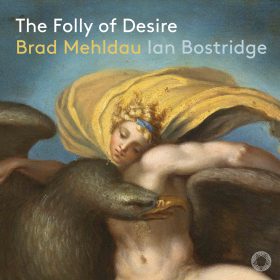“The beloved tenor’s latest book and album emerged from a time when the pandemic forced him to question what exactly he does when he sings.”
With the recent release of The Folly of Desire alongside Brad Mehldau, Ian Bostridge wrote about “music’s fuzzy boundaries of identity”, his latest book and “the album that emerged from a time when the pandemic forced him to question what exactly he does when he sings” in The New York Times.
“Folly” both fits into and challenges the tradition of Romantic lieder that Mehldau and I love so much. It sets a series of poems in a dizzying sequence of musical styles that reflect the shifting perspectives on desire opened up by each poem he sets: the delicate darkness of William Blake’s “The Sick Rose”; the classical horror of Yeats’s “Leda and the Swan”; the sly lubricious perversity of a sonnet by Bertolt Brecht so obscene that his estate will not allow it to be translated; the rollicking jocks of E. E. Cummings’s “The Boys,” set in the style of Supertramp “with Wurlitzer.” The cycle ends with an epilogue based on one of the great poetic expressions of the ambiguities and compromises of sexual relationships, W.H. Auden’s “Lullaby”: “Lay your sleeping head, my love / Human on my faithless arm.
“The Folly of Desire” explores different identities through text and music, some rebarbative and some consolatory, and in doing so shines a light on our experience of desire — its capacity for mindless destruction, its sublime creativity, its sheer idiocy. Folly indeed. As Mehldau writes in a composer’s note, it was written in a period when desire and its dangers were very much at the fore of public discourse, as #MeToo forced everyone to come to terms with the troubled issue of consent.”
Ian Bostridge


